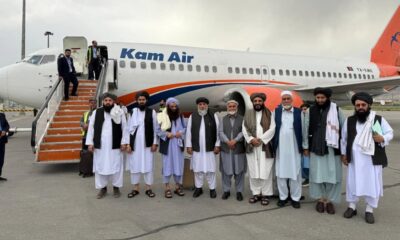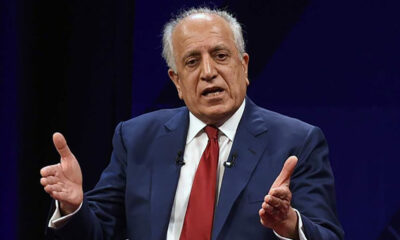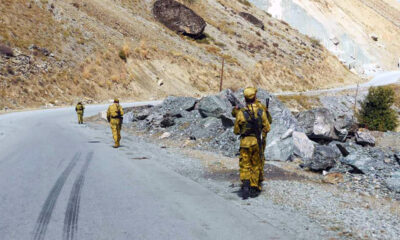World
World’s poorest countries pushed to brink of collapse under China debt
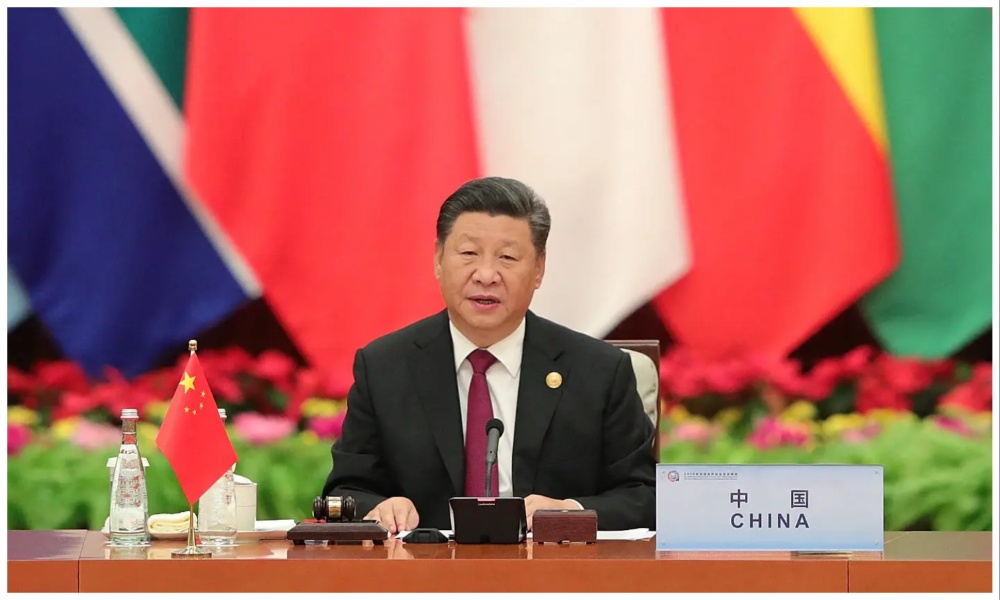
At least a dozen poor countries are buckling under the weight of hundreds of billions of dollars in debt, most of which is owed to China.
A recent analysis, carried out by the Associated Press, found that for a dozen countries, paying back their debt is consuming a growing amount of their tax revenue needed to keep basic services going.
Among the countries analyzed was Pakistan, Kenya, Zambia, Laos and Mongolia and it was found that paying back their debt is also draining foreign currency reserves that these countries use to pay interest on the loans – leaving some with just months before that money is gone.
AP reported that behind the scenes is China’s reluctance to forgive debt and its extreme secrecy about how much money it has loaned and on what terms, which has kept other major lenders from stepping in to help.
According to World Bank data analyzed by Statista recently, countries heavily in debt to China are mostly located in Africa, but can also be found in Central Asia, Southeast Asia and the Pacific.
And, Statista reports that the new Belt and Road Initiative, which finances the construction of port, rail and land infrastructure, has created much debt to China for participating countries, specifically poor countries.
As of March last year, 215 cooperation documents had been signed with 149 countries on the initiative.
Countries in AP’s analysis meanwhile had as much as 50% of their foreign loans from China and most were devoting more than a third of government revenue to paying off foreign debt.
Two of them, Zambia and Sri Lanka, have already gone into default, unable to make even interest payments on loans financing the construction of ports, mines and power plants.
In Pakistan, millions of textile workers have been laid off because the country has too much foreign debt and can’t afford to keep the electricity on and machines running, AP stated.
In Kenya, the government has held back paychecks to thousands of civil service workers to save cash to pay foreign loans. The president’s chief economic adviser tweeted last month, “Salaries or default? Take your pick.”
The study also found that since Sri Lanka defaulted a year ago, a half-million industrial jobs have vanished, inflation has risen by 50% and more than half the population in many parts of the country has fallen into poverty.
The study found that experts predict that unless China begins to soften its stance on its loans to poor countries, there could be a wave of more defaults and political upheavals.
AP’s report stated that a case study of how it has played out is in Zambia, a landlocked country of 20 million people in southern Africa that over the past two decades has borrowed billions of dollars from Chinese state-owned banks to build dams, railways and roads.
While the loans boosted Zambia’s economy, they also raised foreign interest payments so high that there was little left for the government, forcing it to cut spending on healthcare, social services and subsidies to farmers for seed and fertilizer.
In the past under such circumstances, big government lenders such as the U.S., Japan and France would work out deals to forgive some debt, with each lender disclosing clearly what they were owed and on what terms so no one would feel cheated.
But China didn’t play by those rules, AP reported. It refused at first to even join in multinational talks, negotiating separately with Zambia and insisting on confidentiality that barred the country from telling non-Chinese lenders the terms of the loans.
By late 2020, Zambia was unable to pay the interest and defaulted, setting off a cycle of spending cuts and deepening poverty.
Since then, inflation in Zambia has increased by 50%, unemployment has hit a 17-year high and the nation’s currency, the kwacha, has lost 30% of its value in just seven months. AP also found that 3.5 million Zambians are now not getting enough food.
AP reported that a few months after Zambia defaulted, researchers found that the country owed $6.6 billion to Chinese state-owned banks, double what many thought at the time and about a third of the country’s total debt.
China’s unwillingness however to take big losses on the hundreds of billions of dollars it is owed, as the International Monetary Fund and World Bank have urged, has left many countries on a treadmill of paying back interest, which stifles the economic growth that would help them pay off the debt.
For Pakistan, its foreign cash reserves have plunged more than 50%, according to AP’s analysis, while in nine of the 12 countries analyzed, foreign cash reserves have dropped on average of 25% in just one year.
Based on this, Pakistan for example has only two months left of foreign cash to pay for food, fuel and other essential imports if it does not get a bailout. Other countries, such as Mongolia, have eight months left.
AP found that last month, Pakistan was so desperate to prevent more blackouts that it struck a deal to buy discounted oil from Russia, breaking ranks with the US-led effort to shut off Vladimir Putin’s funds.
In Sri Lanka, rioters poured into the streets last July, setting homes of government ministers aflame and storming the presidential palace, sending the leader tied to onerous deals with China fleeing the country.
China has however disputed the idea that Beijing is an unforgiving lender and said in a statement that the Federal Reserve was to blame.
It said that if it is to accede to IMF and World Bank demands to forgive a portion of its loans, so should multilateral lenders, which it views as US proxies.
“We call on these institutions to actively participate in relevant actions in accordance with the principle of ‘joint action, fair burden’ and make greater contributions to help developing countries tide over the difficulties,” the statement said.
But China’s approach to lending is widely considered more transactional and criticized as “opaque” and analysts see Beijing’s desire to access oil, minerals and other commodities as the driving force behind Chinese lenders being less prone to applying strict conditions in helping governments finance roads, bridges and railroads – so as to unlock those resources.
Just last month, US Treasury Secretary Janet Yellen told lawmakers: “I’m very, very concerned about some of the activities that China engages in globally, investing in countries in ways that leave them trapped in debt and don’t promote economic development.”
“We are working very hard to counter that influence in all of the international institutions that we participate in,” she said.
Since 2017, China has become the world’s largest official creditor, surpassing the World Bank, IMF and 22-member Paris Club combined, Brent Neiman, a counselor to Yellen, said late last year.
Politico meanwhile reported earlier this month that China’s financing of projects in other countries between 2000 and 2017 totaled more than $800 billion, most of that in the form of loans.
But for some poor countries struggling to repay China, they now find themselves stuck in a kind of loan limbo: China won’t budge in taking losses, and the IMF won’t offer low-interest loans if the money is just going to pay interest on Chinese debt.
World
Trump holds Situation Room meeting on Iran, officials say
Trump has threatened military action against Iran if it does not give up its nuclear program while also stressing the need for diplomacy and negotiations.

President Donald Trump met with his top national security aides on Tuesday to discuss Iran’s nuclear program ahead of a second meeting between U.S. and Iranian officials on Saturday, sources said.
U.S. special envoy Steve Witkoff is to meet his Iranian counterpart on Saturday, a session currently scheduled to be held in Oman. Trump spoke to the sultan of Oman, Haitham bin Tariq, about Oman’s mediation role between Washington and Tehran.
A White House official confirmed the White House Situation Room meeting on Iran and said the location was not unusual since Trump gets briefed there regularly to take advantage of the chamber’s secure setting.
A second source briefed on the meeting said Trump and his top aides discussed the Iran talks and next steps. U.S. officials have been working on a framework for a potential nuclear deal.
Trump has threatened military action against Iran if it does not give up its nuclear program while also stressing the need for diplomacy and negotiations.
White House press secretary Karoline Leavitt told reporters Trump’s bottom line in the talks, which included an initial session last Saturday, is he wanted to use negotiations to ensure Iran does not obtain a nuclear weapon.
Trump and the Omani leader also discussed ongoing U.S. operations against Yemen’s Houthis, she said.
“The maximum pressure campaign on Iran continues,” Leavitt said at a press briefing. “The president has made it clear he wants to see dialogue and discussion with Iran, while making his directive about Iran never being able to obtain a nuclear weapon quite clear.”
She added that he had “emphasized” this directive during the call with Sultan Haitham.
Both sides described last weekend’s U.S.-Iran talks in Oman as positive.
Trump has restored a “maximum pressure” campaign on Tehran since February, after he ditched a 2015 nuclear pact between Iran and six world powers during his first term and reimposed crippling sanctions on the Islamic Republic.
Iran’s nuclear program has leaped forward since then. The two countries held indirect talks during former President Joe Biden’s term but made little, if any progress.
Iran’s clerical rulers have publicly said that demands such as dismantling the country’s peaceful nuclear program or its conventional missile capabilities were off the table.
World
Trump says Iran must give up dream of nuclear weapon or face harsh response
Trump said the Iranians need to move fast to avoid a harsh response because “they’re fairly close” to developing a nuclear weapon.

President Donald Trump said on Monday he believes Iran is intentionally delaying a nuclear deal with the United States and that it must abandon any drive for a nuclear weapon or face a possible military strike on Tehran’s atomic facilities, Reuters reported.
“I think they’re tapping us along,” Trump told reporters after U.S. special envoy Steve Witkoff met in Oman on Saturday with a senior Iranian official.
Both Iran and the United States said on Saturday that they held “positive” and “constructive” talks in Oman. A second round is scheduled for Saturday, and a source briefed on the planning said the meeting was likely to be held in Rome.
The source, speaking to Reuters on the condition of anonymity, said the discussions are aimed at exploring what is possible, including a broad framework of what a potential deal would look like.
“Iran has to get rid of the concept of a nuclear weapon. They cannot have a nuclear weapon,” Trump said.
Asked if U.S. options for a response include a military strike on Tehran’s nuclear facilities, Trump said: “Of course it does.”
Trump said the Iranians need to move fast to avoid a harsh response because “they’re fairly close” to developing a nuclear weapon.
The U.S. and Iran held indirect talks during former President Joe Biden’s term but they made little, if any progress. The last known direct negotiations between the two governments were under then-President Barack Obama, who spearheaded the 2015 international nuclear deal that Trump later abandoned, read the report.
World
EU to boost financial support for Palestinian Authority
The European Commissioner for the Mediterranean, said the financial support would go hand in hand with reforms of the Palestinian Authority
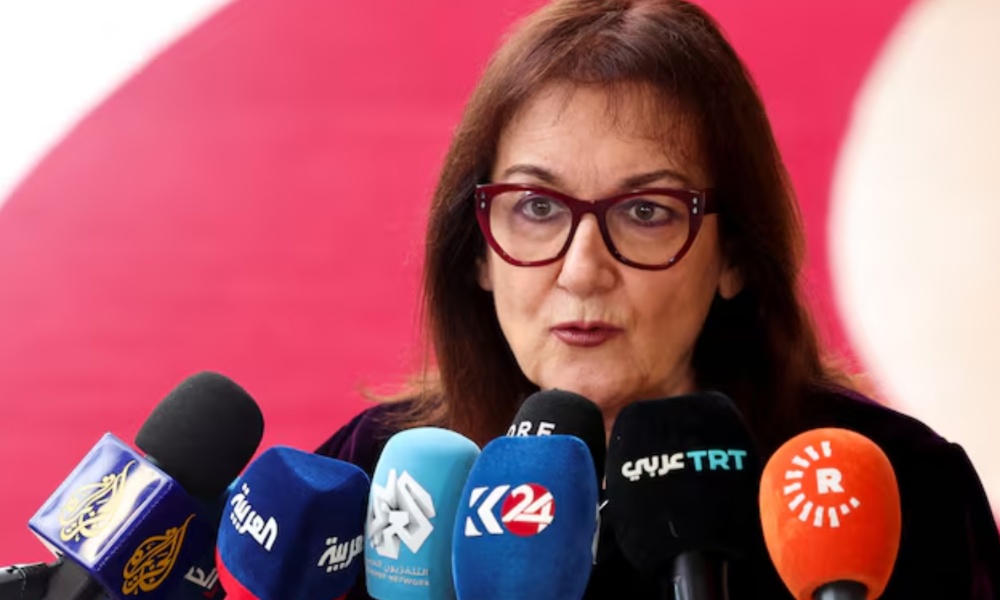
The European Union will increase its financial support for the Palestinian Authority with a three-year package worth around 1.6 billion euros ($1.8 billion), the European Commissioner responsible for the Middle East told Reuters in an interview.
Dubravka Suica, the European Commissioner for the Mediterranean, said the financial support would go hand in hand with reforms of the Palestinian Authority, which has been accused by critics of corruption and bad governance.
“We want them to reform themselves because without reforming, they won’t be strong enough and credible in order to be an interlocutor, not for only for us, but an interlocutor also for Israel,” Suica said.
The commissioner’s remarks came ahead of a first “high-level political dialogue” between European Union foreign ministers and senior Palestinian officials including Prime Minister Mohammad Mustafa in Luxembourg on Monday.
The EU is the biggest donor to the Palestinians and EU officials hope the Palestinian Authority, which runs the West Bank, may also one day take responsibility for Gaza after the war between Israel and Hamas militants comes to an end, Reuters reported.
Israeli Prime Minister Benjamin Netanyahu’s government, however, has so far rejected the idea of handing over Gaza to the PA and shunned the EU’s broader aim of a two-state solution, which would include the establishment of a Palestinian state.
Suica said 620 million euros would go to financial support and reform of the PA, 576 million euros to “resilience and recovery” of the West Bank and Gaza and 400 million euros would come in loans from the European Investment Bank, subject to the approval of its governing body, Reuters reported.
She said average EU support for the PA had amounted to about 400 million euros over the past 12 years.
“We are investing now in a credible manner in the Palestinian Authority,” Suica said.
I think that the United States Steel one of the great companies of the world should remain in our country.
-
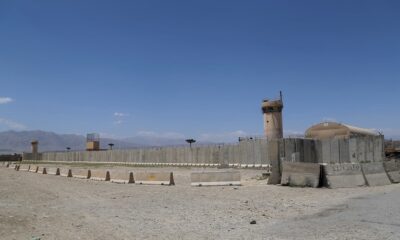
 Latest News5 days ago
Latest News5 days agoNo American military presence in Bagram: US defense official
-
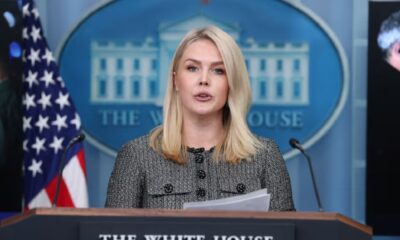
 World5 days ago
World5 days agoWhite House says ‘all hell to pay’ should Iran develop nuclear weapon
-
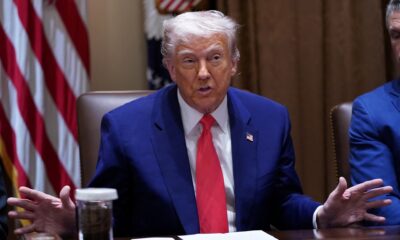
 Latest News5 days ago
Latest News5 days agoTrump ends protected status for thousands of Afghans, Cameroonians
-
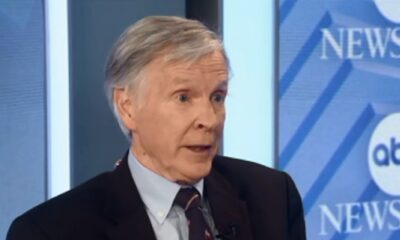
 Latest News5 days ago
Latest News5 days ago‘No one wants to see a nuclear-armed Iran,’ says former US ambassador to Afghanistan
-
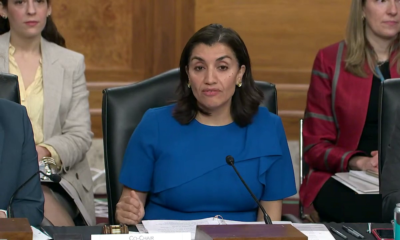
 Latest News4 days ago
Latest News4 days agoUS Senate convenes commission to review early years of Afghanistan war
-
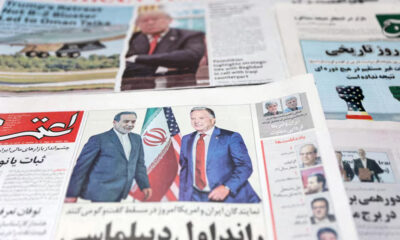
 Regional4 days ago
Regional4 days agoIran, US hold ‘positive’ talks in Oman, agree to resume next week
-
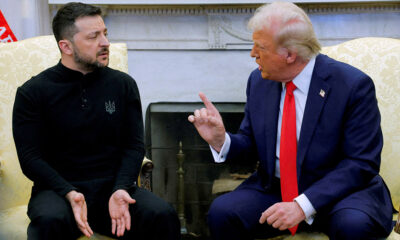
 World4 days ago
World4 days agoTrump says Ukraine talks may be going OK, but there is a time ‘to put up or shut up’
-

 Latest News4 days ago
Latest News4 days ago6.1-magnitude earthquake shakes northern Afghanistan




